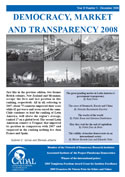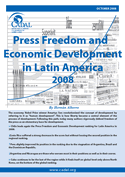
The Rio Group blocks democracy in Cuba
The Rio Group is a Latin American mechanism of political articulation and diplomatic negotiation which was created in 1986 and currently consists of 23 member countries. The Rio Group decided to incorporate the Cuban dictatorship as a full-fledged member during the presidential summit of Mercosur.





